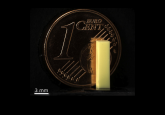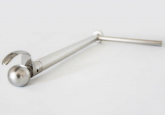3D-printed robot muscle that can cool off by ‘sweating’

Recent research has developed a 3D-printed robot muscle that can cool off by 'sweating'. The regulation of robotic temperature in soft materials could have substantial impact in long-term performance. Researchers from Cornell University (NY, USA) have developed a 3D-printed soft robot muscle that has the ability to regulate its own temperature by releasing water via 'sweating'. This could allow for robots to operate for long periods of time without running the risk of overheating. The study, entitled 'Autonomic perspiration in 3D-printed hydrogel actuators', has been published in the journal, Science Robotics. Thermal management is a current concern surrounding soft robots...





